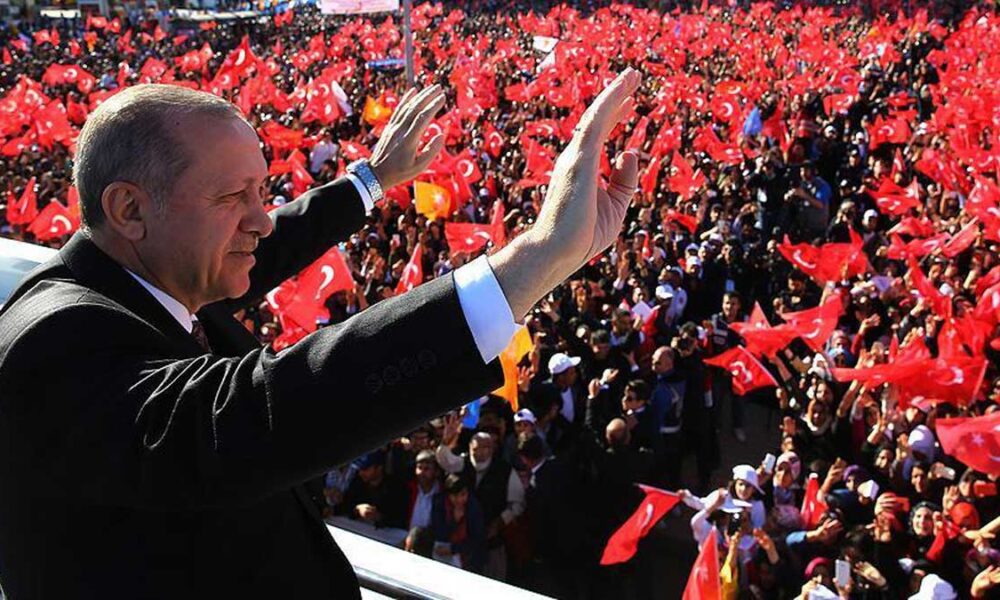The Arab League is an alliance of states that currently has 22 member states in Northern Africa and on the Arabian Peninsula, which belongs geographically to Asia. All member countries together cover an area of 13.15 million km² (8.7% of the world’s inhabitable area). Significant parts are desert regions such as the Sahara and the Rub al-Khali sand desert. With about 456.52 million inhabitants, the area is home to about 5.8 percent of the world’s population.
On October 7, 1944, a “Protocol of Alexandria” was signed as a loose union. After elaborating on the ideas, the Arab League was founded the following year on 11 May 1945. The first member states were the kingdoms of Egypt, Iraq, Saudi Arabia, and Yemen, as well as Lebanon, Syria, and the then Emirate of Transjordan.
The history of the Arab League since then has been marked by numerous political and military conflicts in the region. In the immediate post-war period, the growing Jewish population in Palestine played a major role. This led to the division of Palestine into a Jewish and an Arab state in 1949. With the withdrawal of the British Allies, there was also a lack of an overarching protective power and serious and recurrent conflicts with Israel arose.
The recent 32nd Arab League Meeting held in the magnificent city of Jeddah, Saudi Arabia, has drawn to a successful close, leaving a profound impact on regional politics. High-ranking officials and diplomats from Arab nations gathered to discuss pressing issues and forge a path toward greater cooperation and unity. The meeting, which took place against a backdrop of evolving geopolitical dynamics, produced key decisions that are poised to shape the future of the Arab world.
Hosted by the Kingdom of Saudi Arabia, a staunch advocate of Arab solidarity and stability, the summit aimed to bolster inter-Arab relations and address the region’s most pressing challenges. Under the gracious patronage of His Majesty King Salman bin Abdulaziz Al Saud, leaders and representatives from across the Arab League engaged in constructive dialogue, fostering an atmosphere of camaraderie and shared vision.
One of the major highlights of the meeting was the unanimous agreement on establishing a joint counterterrorism center. This significant step underscores the Arab League’s commitment to combating terrorism and maintaining regional security. The center will serve as a platform for intelligence sharing, coordinated efforts, and capacity building among member states, further enhancing the collective response to the ever-present threat of extremism.
In addition to counterterrorism initiatives, the Arab League delegates focused on revitalizing the Arab Peace Initiative, which has been instrumental in pursuing a just and lasting resolution to the Israeli-Palestinian conflict. The participants expressed their unwavering support for the rights of the Palestinian people and called for renewed international efforts to resume meaningful negotiations. The Arab League’s stance sends a clear message that a comprehensive and equitable solution is imperative for sustainable peace in the region.
Moreover, discussions during the summit centered on the ongoing crises in Libya, Syria, and Yemen. Arab League members pledged increased support and cooperation in finding political solutions and bringing stability to these war-torn nations. The delegates affirmed their commitment to the principles of sovereignty, territorial integrity, and non-interference, emphasizing the need for inclusive dialogue to end conflicts and restore peace.
The political impact of the Arab League Meeting cannot be understated. It signifies a renewed commitment to Arab unity and cooperation amid a rapidly changing regional landscape. The decisions made in Jeddah hold the potential to shape the political dynamics of the Arab world, ensuring stability, security, and prosperity for its nations and peoples.
The meeting also provided an opportunity for member states to strengthen bilateral relations and engage in fruitful discussions on areas of mutual interest. In the spirit of constructive diplomacy, numerous side meetings and cultural exchanges took place, fostering greater understanding and cooperation among Arab nations.
As the Arab League Meeting drew to a close, the host nation, Saudi Arabia, expressed gratitude to all participating countries for their valuable contributions and emphasized its commitment to further collaboration in the future. The outcomes of the meeting will be diligently pursued and implemented, underlining the shared determination of Arab nations to overcome challenges and seize opportunities for progress.
This time the participation of Syria was a milestone, it happened after 12 years of absence. Another important aspect was the attendance of Ukrainian President Zelenskyy. These two important aspects will have far-reaching impacts on regional politics and global peace, stability, and security.
